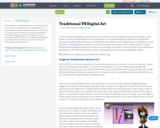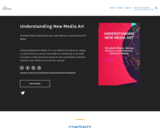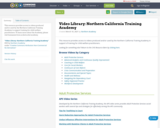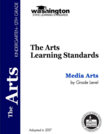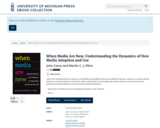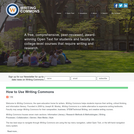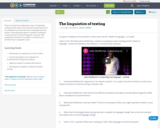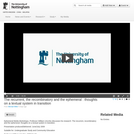In this presentation from the Institute of Film and Television Studies' Ephemeral Media Workshops, Professor William Uricchio discusses his research: The recurrent, recombinatory and the ephemeral: thoughts on a textual system in transition.
Presentation produced/delivered: June/July 2009
Suitable for: Undergraduate Study and Community Education
Professor William Uricchio, MIT/Utrecht
William Uricchio is Professor and Director of the MIT Comparative Media Studies Program and professor of Comparative Media History at Utrecht University in the Netherlands. He has held visiting professorships at Stockholm University, the University of Science and Technology of China, the Freie Universität Berlin, and Philips Universität Marburg; and Guggenheim, Fulbright and Humboldt fellowships have supported his research.
Professor William Uricchio considers the interplay of media technologies into cultural practices, and their role in (re-)constructing representation, knowledge and publics. In part, he researches and develops new histories of 'old' media (early photography, telephony, film, broadcasting, and new media) when they were new. And in part, he investigates the interactions of media cultures and their audiences through research into such areas as peer-to-peer communities and cultural citizenship, media and cultural identity, and historical representation in computer games and re-enactments.
His most recent books include Media Cultures (2006 Heidelberg), on responses to media in post 9/11 Germany and the US, and We Europeans? Media, Representations, Identities (2008 Chicago). He is currently completing a manuscript on the concept of the televisual from the 17th century to the present

